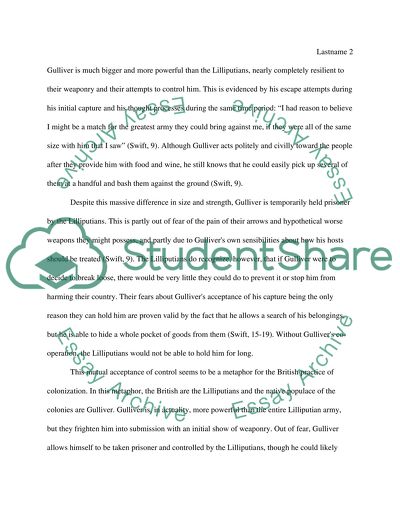Cite this document
(“The Use of Size as a Metaphor in Gulliver's Travels Research Paper”, n.d.)
Retrieved from https://studentshare.org/literature/1451669-the-use-of-size-as-a-metaphor-in-gullivers-travels
Retrieved from https://studentshare.org/literature/1451669-the-use-of-size-as-a-metaphor-in-gullivers-travels
(The Use of Size As a Metaphor in Gulliver'S Travels Research Paper)
https://studentshare.org/literature/1451669-the-use-of-size-as-a-metaphor-in-gullivers-travels.
https://studentshare.org/literature/1451669-the-use-of-size-as-a-metaphor-in-gullivers-travels.
“The Use of Size As a Metaphor in Gulliver'S Travels Research Paper”, n.d. https://studentshare.org/literature/1451669-the-use-of-size-as-a-metaphor-in-gullivers-travels.


